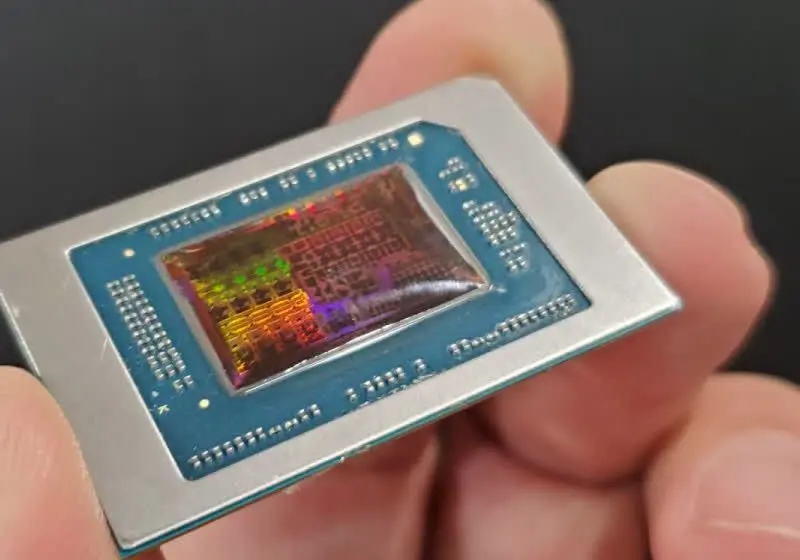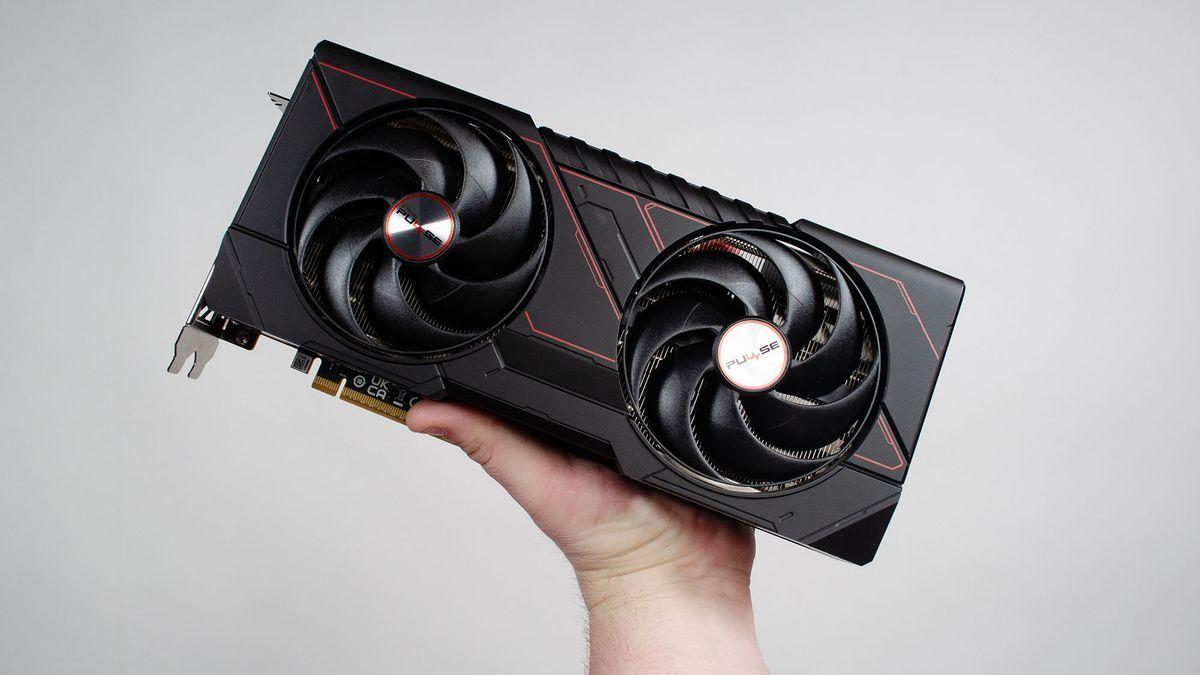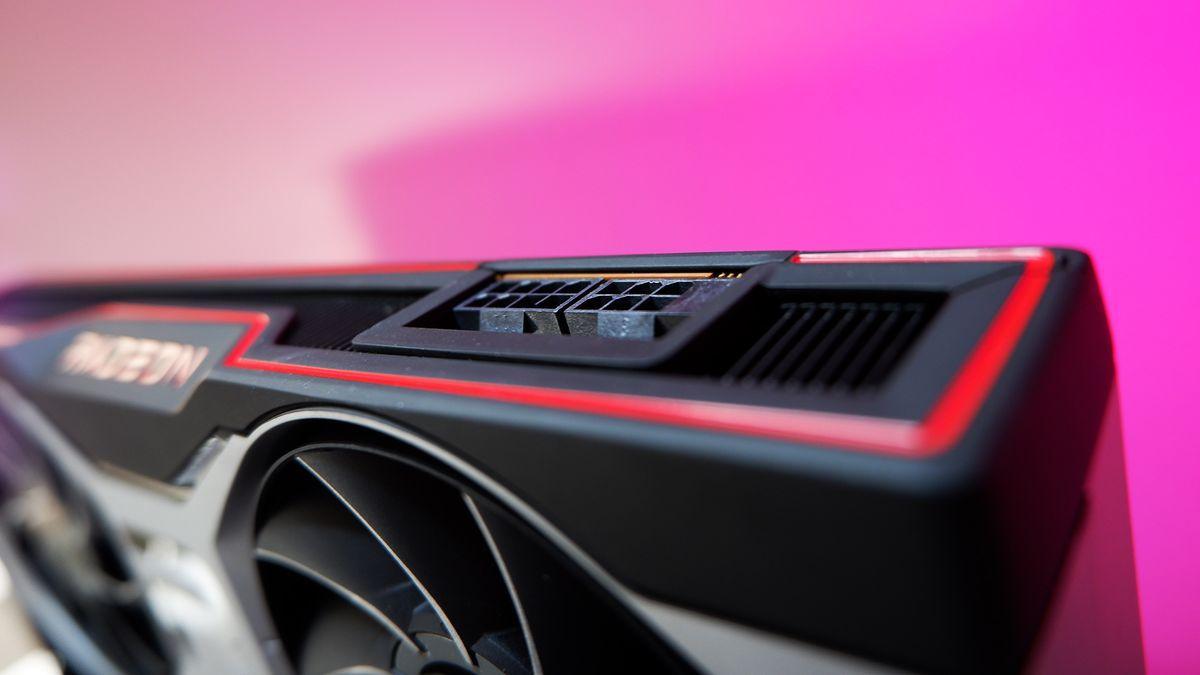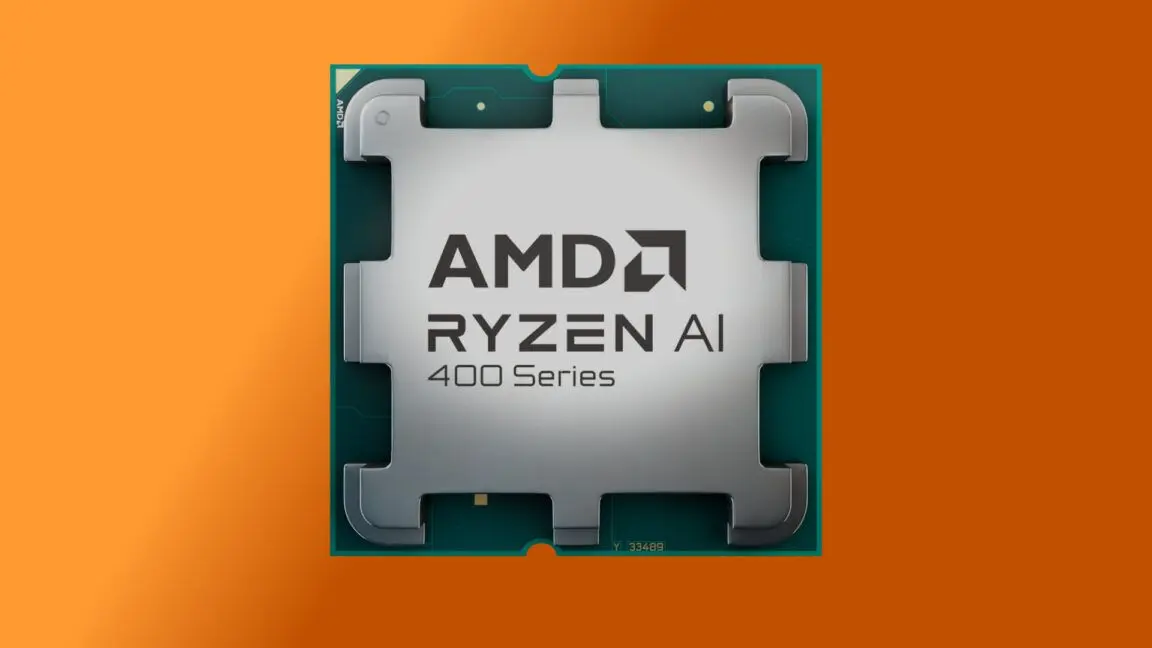AMD Explores Discrete NPUs for AI-Powered PCs, Challenging GPU Dominance
4 Sources
4 Sources
[1]
AMD signals push for discrete NPUs to rival GPUs in AI-powered PCs
Forward-looking: As AI workloads reshape computing, AMD is exploring a dedicated neural processing unit to complement or replace GPUs in AI PCs. This move reflects growing industry momentum toward specialized accelerators that promise faster performance and greater energy efficiency - key factors as PC makers race to deliver smarter, leaner machines. AMD is exploring whether PCs could benefit from a new kind of accelerator: a discrete neural processing unit. The company has long relied on GPUs for demanding workloads, but the rise of AI-specific hardware opens the door to something more efficient and specialized. Rahul Tikoo, head of AMD's client CPU business, told CRN that the chipmaker is in early talks with customers about what such a chip might look like and where it could fit. "We're talking to customers about use cases and potential opportunities for a dedicated accelerator chip that is not a GPU but could be a neural processing unit," Tikoo said during a briefing before AMD's Advancing AI event last month. The idea arrives as PC makers like Lenovo, Dell Technologies, and HP seek ways to offload AI processing from traditional CPUs and GPUs. Dell has already taken that step with its new Pro Max Plus laptop, which features a Qualcomm AI 100 inference card - touted as the first enterprise-grade discrete NPU for PCs. Tikoo declined to reveal when AMD might launch such a chip, stressing future plans remain under an NDA. However, he suggested the company has the pieces in place to move quickly if it decides to proceed, making the leap to a discrete NPU plausible. AMD's efforts to embed AI capabilities into Ryzen processors could provide the foundation. The company has used AI engine technology from its Xilinx acquisition as the basis for NPU blocks in its latest chips - a move that could scale into stand-alone products. Christopher Cyr, CTO of Sterling Computers, said the technology roadmap is already clear. "If this particular NPU tile creates 50 TOPS [trillion operations per second], tack on two of them, make it 100 TOPS," Cyr said. He emphasized that any discrete NPU from AMD must deliver meaningful performance gains without consuming the kind of power or generating the heat typical of a stand-alone GPU. Efficiency is critical for PC makers striving to maintain thin designs and long battery life while adding AI capability. Without those energy savings, a discrete NPU risks becoming just another bulky, heat-producing component rather than a genuine alternative to today's GPU-driven solutions. Also read: Opinion: The rapidly evolving world of AI PCs Cyr cited AMD's Gaia open-source project, designed to run large language models locally on Ryzen-based Windows PCs, as evidence that the company is laying the groundwork for a broader AI push. "They're making really good inroads towards leveraging that whole ecosystem," he noted. While GPUs have been the default accelerator for years - and Nvidia would like to keep it that way - NPUs are reshaping the landscape. Intel, AMD, and Qualcomm have integrated NPUs into their latest processors. Still, there is growing momentum for discrete versions that deliver higher performance without the heat and power draw of GPUs. Some of the first attempts came from Intel, which equipped a 2023 Surface Laptop with a Movidius VPU before its Core Ultra chips had onboard NPUs. Dell's latest workstation takes things further with a Qualcomm card pushing 450 TOPS in a 75-watt envelope. Startups like Encharge AI are entering the fray too, promising NPU add-ons with GPU-level compute capacity at a fraction of the cost and power consumption. AMD's discrete NPU would broaden its product lineup beyond CPUs, GPUs, and integrated accelerators. This addition would offer OEMs a new option to integrate AI capabilities into PCs, potentially providing a leaner and more energy-efficient alternative to today's GPU-heavy setups.
[2]
AMD mulls dedicated NPUs for desktop PCs - like graphics cards, but for AI tasks - and this could be excellent news for PC gamers
Such boards would lessen demand on higher-end GPUs, as they'd no longer be bought for AI work, as they are in some cases AMD is looking to a future where it might not just produce standalone graphics cards for desktop PCs, but similar boards which would be the equivalent of an AI accelerator - a discrete NPU, in other words. CRN reports (via Wccftech) that AMD's Rahul Tikoo, head of its client CPU business, said that Team Red is "talking to customers" about "use cases" and "potential opportunities" for such a dedicated NPU accelerator card. CRN points out that there are already moves along these lines afoot, such as an incoming Dell Pro Max Plus laptop, which is set to boast a pair of Qualcomm AI 100 PC inference cards. That's two discrete NPU boards with 16 AI cores and 32GB of memory apiece, for 32 AI cores and 64GB of RAM in total. To put that in perspective, current integrated (on-chip) NPUs, such as those in Intel's Lunar Lake CPUs, or AMD's Ryzen AI chips, offer around 50 TOPS - ideal for Copilot+ PCs - whereas you're looking at up to 400 TOPS with the mentioned Qualcomm AI 100. These boards are for beefy workstation laptops and AI power users. Tikoo observed: "It's a very new set of use cases, so we're watching that space carefully, but we do have solutions if you want to get into that space - we will be able to." The AMD exec wouldn't be drawn to provide a hint at a timeframe in which AMD might be planning to realize such discrete NPU ambitions, but said that "it's not hard to imagine we can get there pretty quickly" given the 'breadth' of Team Red's technologies. So, does this mean it won't be too long before you might be looking at buying your desktop PC and mulling a discrete NPU alongside a GPU? Well, not really, this still isn't consumer territory as such - as noted, it's more about AI power users - but it will have an important impact on everyday PCs, at least for enthusiasts. These standalone NPU cards will only be needed by individuals working on more heavyweight AI tasks with their PC. They will offer benefits for running large AI models or complex workloads locally rather than on the cloud, with far more responsive performance (dodging the delay factor that's inevitably brought into the mix when piping work online, into the cloud). There are obvious privacy benefits from keeping work on-device, rather than heading cloud-wards, and these discrete NPUs will be designed to be more efficient than GPUs taking on these kinds of workloads - so there will be power savings to be had. And it's here we come to the crux of the matter for consumers, at least enthusiast PC gamers looking at buying more expensive graphics cards. As we've seen in the past, sometimes individuals working with AI purchase top-end GPUs - like the RTX 5090 or 5080 - for their rigs. When dedicated NPUs come out from AMD (and others), they will offer a better choice than a higher-end GPU - which will take pressure off the market for graphics cards. So, especially when a new range of GPUs comes out, and there's an inevitable rush to buy, there'll be less overall demand on higher-end models - which is good news for supply and pricing, for gamers who want a graphics card to, well, play PC games, and not hunker down to AI workloads. Roll on the development of these standalone NPUs, then - it's got to be a good thing for gamers in the end. Another thought for the much further away future is that eventually, these NPUs may be needed for AI routines within games, when complex AI-driven NPCs are brought into being. We've already taken some steps down this road, cloud-wise, although whether that's a good thing or not is a matter of opinion.
[3]
Move over, GPUs and CPUs: AMD is looking into creating AI accelerator cards to improve the neural performance of ordinary PCs
If you want to do a spot of homebrewed AI on your PC, be it just some generative image making for fun or more serious data research, then you've only got two options to do this: use a neural processor built into a CPU or use a graphics card. However, if AMD's early investigations bear silicon fruit, then there will be a new choice to consider, a discrete AI accelerator card. AMD's head of client CPUs, Rahul Tikoo, spoke to CRN at a press briefing, where he confirmed that the company was in the early stages of exploring the possibility of a discrete AI accelerator card for desktop PCs. That mostly involves talking to its customers to see how much potential interest there is and what the expected use cases would be. If AMD deems there to be enough interest to make the project financially viable, it actually wouldn't take all that long for it to churn something out. Tikoo suggests that the accelerator card wouldn't be using a GPU but potentially could sport an NPU chip, instead. AMD already has plenty of experience with them, of course, as a whole host of its laptop CPUs sport an XDNA-powered NPU. Neural processing units (NPUs) are specialised circuits designed to handle the specific mathematics and data formats heavily used in AI algorithms. In some ways, they're quite similar to GPUs, as they do lots of parallel processing, but they're far less versatile. Well, the NPUs stuffed inside AMD and Intel CPUs aren't especially versatile because they're pretty small and have to share resources and buses with the rest of the processor. Take it out of the CPU, scale it up so it's much more powerful, give it its own memory and PCIe controllers, and then stick it on a circuit board with lots of RAM, and you'll have something far more potent. Discrete 'AI cards' already exist, such as Qualcomm's Cloud AI 100 Ultra, although they're primarily designed for use in large data centres, not a small PC on your desk. Many are just GPUs with no monitor outputs, and the latest gaming graphics cards can easily handle AI tasks, so it would be understandable to question why AMD would consider creating a desktop AI card. Nvidia utterly dominates the GPU industry, which is why it also dominates the AI industry. However, its range of chips is relatively narrow -- all GeForce GPUs are just scaled versions of the same design, and they're not altered in any way for use in the professional market. Only its megascale processors, the likes of the B200 and GB200, are fundamentally different. That means there's scope for AMD to create something uniquely different and specialised solely on AI that, if priced correctly, could be of real interest to thousands of PC users around the world. An AI accelerator that's more capable than an RTX 5090 in neural processing, and costs significantly less, would be snapped up. AMD already has the software stack for its CPU-housed NPUs and an entire line of specialised chips and cards, so it's well within its remit to quickly make an AI accelerator. And who knows, if it all comes to fruition, there's perhaps a chance we'll see gaming PCs sporting a little AI card to handle the machine learning algorithms for frame generation, much like how you can use a second graphics card to run Lossless Scaling. Some of you may recall Ageia's PPU (physics processing unit) accelerator card, aka PhysX, and although that had a very short existence before Nvidia bought the company, it showed that having specialised hardware can make a significant difference to games. I reckon there will be enough interest from AMD's PC partners to give it the incentive to make a desktop AI accelerator card. My only concern is that if it's not marketed properly, e.g. it just gets muddied in the whole AI PC nonsense, then few people will actually buy one, and it'll just end up going the way of the dodo. Or to be more appropriate, a PhysX card.
[4]
AMD Is Reportedly Looking Toward Introducing a Dedicated Discrete NPU, Similar to Gaming GPUs But Targeted Towards AI Performance On PCs; Taking Edge AI to New Levels
AMD is reportedly looking towards developing a discrete NPU solution for PC consumers, which would allow the average system to get supercharged AI capabilities. The idea of a discrete NPU isn't exactly new, and we have seen solutions such as Qualcomm's Cloud AI 100 Ultra inferencing card, which is designed for a similar objective to what AMD wants to achieve. According to a report by CRN, it is claimed that AMD's head of AMD's client CPU business, Rahul Tikoo, is looking towards market prospects of introducing a dedicated AI engine in the form of a discrete card for PC consumers, aiding AMD's efforts of making AI computation accessible for everyone. It's a very new set of use cases, so we're watching that space carefully, but we do have solutions if you want to get into that space -- we will be able to. But certainly if you look at the breadth of our technologies and solutions, it's not hard to imagine we can get there pretty quickly. Dedicated AI engines on processors have seen massive adoption over the past few years, particularly fueled by lineups such as AMD's Strix Point or Intel's Lunar Lake mobile processors. Ever since we have entered the "AI PC" era, companies are rushing towards advancing their AI engines to squeeze as much TOPS as possible; however, this solution is mainly limited to compact devices like laptops, and for consumer PCs, well, there are no such options available for now. AMD might look to capitalize on this market gap with a discrete NPU card. AMD's whole consumer ecosystem is making the AI pivot, and one reason we say this is that with the recent Strix Halo APUs, the company has managed to bring in support for 128B parameter LLMs, which is simply amazing. Compact mini-PCs have managed to run massive models locally, allowing consumers to leverage the edge AI hype, and it won't be wrong to say that AMD's XDNA engines have been the leading option when it comes to AI compute on mobile chips. There might be skepticism about the scale of a "discrete NPU" market since not every consumer needs high-end AI capabilities, but if AMD wants it to be targeted towards the professional segment, that could be an option. For now, things are at the early stage, but it seems like Team Red has a lot planned in for the AI market.
Share
Share
Copy Link
AMD is considering the development of discrete Neural Processing Units (NPUs) for PCs, potentially offering a more efficient alternative to GPUs for AI workloads. This move could reshape the landscape of AI acceleration in personal computing.
AMD's Strategic Move into Discrete NPUs
AMD is exploring the development of discrete Neural Processing Units (NPUs) for PCs, signaling a potential shift in the landscape of AI acceleration for personal computing. Rahul Tikoo, head of AMD's client CPU business, revealed that the company is in early discussions with customers about the possibilities and use cases for a dedicated AI accelerator chip that is distinct from a GPU
1
.
Source: TechSpot
The Rise of Specialized AI Accelerators
The push for discrete NPUs comes as PC manufacturers seek more efficient ways to handle AI workloads. Dell has already taken steps in this direction with its Pro Max Plus laptop, which features a Qualcomm AI 100 inference card, marking the first enterprise-grade discrete NPU for PCs
1
. This trend reflects a growing industry momentum towards specialized accelerators that promise faster performance and greater energy efficiency.Potential Impact on the PC Market
The introduction of discrete NPUs could have significant implications for the PC market:
-
Alternative to GPUs: These NPUs could offer a more efficient option for AI tasks, potentially reducing the demand for high-end GPUs currently used for AI workloads
2
. -
Enhanced Local AI Processing: Discrete NPUs could enable more powerful local AI processing, allowing complex AI models to run on-device rather than relying on cloud services
2
. -
Benefits for Gamers: By potentially reducing demand for high-end GPUs, this move could lead to better supply and pricing for gamers seeking graphics cards primarily for gaming purposes
2
.

Source: TechRadar
Related Stories
AMD's Technological Foundation
AMD's exploration of discrete NPUs builds upon its existing AI capabilities:
-
XDNA Technology: The company has already integrated AI engine technology from its Xilinx acquisition into Ryzen processors, which could serve as a foundation for standalone products
1
. -
Gaia Project: AMD's open-source project for running large language models locally on Ryzen-based Windows PCs demonstrates the company's commitment to advancing AI capabilities
1
. -
Existing NPU Experience: AMD has experience with NPUs in its laptop CPUs, which could be scaled up for discrete solutions
3
.
Market Positioning and Challenges
While the concept of discrete NPUs for PCs is promising, AMD faces several considerations:
-
Performance vs. Efficiency: Any discrete NPU from AMD must deliver significant performance gains without the power consumption and heat generation typical of standalone GPUs
1
. -
Market Differentiation: AMD has an opportunity to create a uniquely specialized AI accelerator that could compete with Nvidia's dominance in the GPU-driven AI market
3
.

Source: PC Gamer
- Consumer Adoption: The success of discrete NPUs will depend on effective marketing and clear use cases to drive consumer interest and adoption
3
.
As AMD continues to explore this new frontier in AI acceleration, the potential for discrete NPUs to reshape the PC landscape remains significant. The move could not only enhance AI capabilities for consumers but also impact the broader ecosystem of AI-powered computing
4
.References
Summarized by
Navi
Related Stories
Recent Highlights
1
OpenAI secures $110 billion funding round from Amazon, Nvidia, and SoftBank at $730B valuation
Business and Economy

2
Trump orders federal agencies to ban Anthropic after Pentagon dispute over AI surveillance
Policy and Regulation

3
Google releases Nano Banana 2 AI image model with Pro quality at Flash speed
Technology








